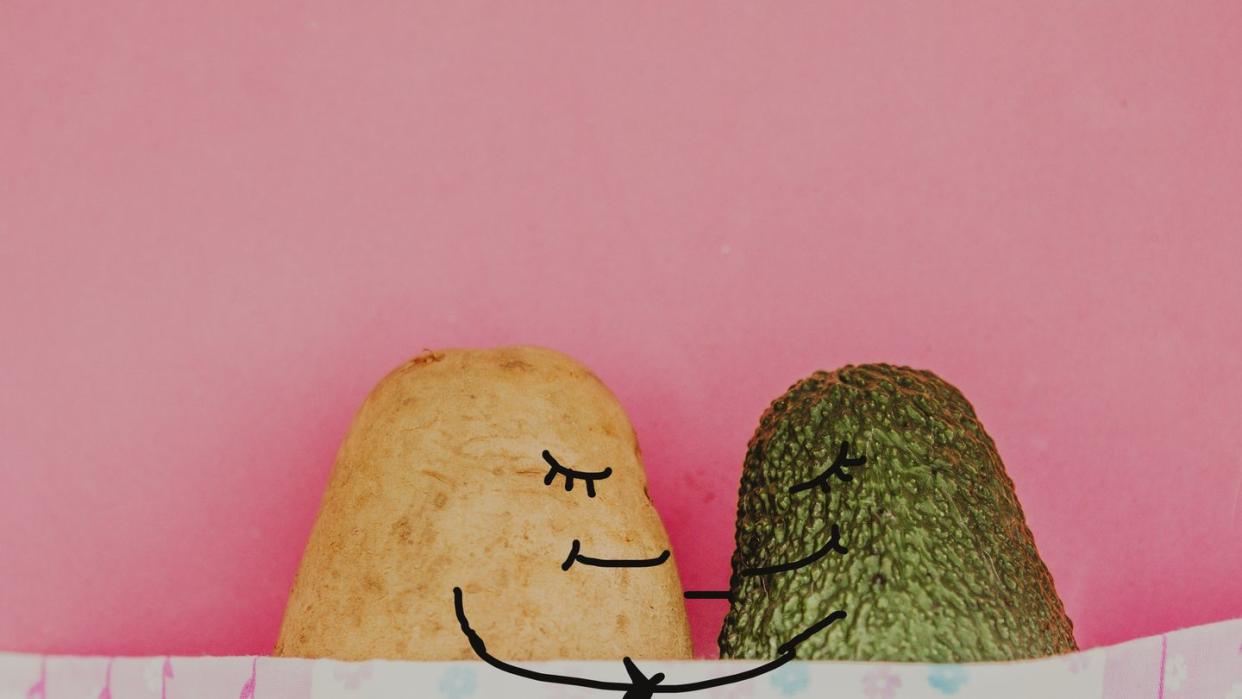These 9 Foods May Help You Fall Asleep (and Stay Asleep!), According to Dietitians

Breakfast is always touted as the most important meal because it fuels the body for the day ahead. But going to bed with an empty stomach, or one that’s not nutritionally satiated, can be just as bad as skipping your morning smoothie. “Eating food is similar to putting gas in your car,” explains Maggie G. Lyon, R.D., C.D.N., a practitioner in residence of hospitality and tourism management at the University of New Haven. And you may not think of sleep as something that requires much gas, but it’s actually a time when many restorative processes take place, so eating foods that help you sleep can be the difference between waking up tired, or not.
Meet the Experts: Maggie G. Lyon, R.D., C.D.N., a practitioner in residence of hospitality and tourism management at the University of New Haven and Courtney Coe, R.D.N., a registered dietitian at WellTheory.
“Nutrition plays an important role in your sleep cycle and sleep quality,” adds Courtney Coe, R.D.N., a registered dietitian at WellTheory. Below, she and Lyon share foods to fill up on before hitting the hay.
Cherries
A la the viral sleepy girl mocktail (and, you know, science), tart cherry juice provides “a natural source of melatonin, a hormone that regulates sleep-wake cycles,” says Coe. If you take melatonin in supplement form already, try switching to a glass of tart cherry juice and see if it helps you slip into slumber, she suggests.
Nuts and seeds
“Nuts and seeds like almonds, cashews, and pumpkin seeds all contain magnesium,” says Coe. Magnesium is thought to benefit sleep by promoting muscle relaxation and therefore improving sleep quality. Nuts and seeds also contain healthy fats, Coe adds, which can keep blood sugar balanced throughout the night and prevent a wakeup call from a growling stomach. Pumpkin seeds also contain tryptophan, an amino acid that converts to serotonin, a feel-good neurotransmitter that imbues calmness, which is then converted into melatonin, promoting sleep, Lyon explains.
Turkey
You’re probably not surprised to see turkey on this list, as it gets blamed for Thanksgiving afternoon naps annually. It is true that the bird contains tryptophan, Lyon says, but not enough to knock you out on its own. The post-holiday meal slump, instead, can be attributed to the turkey eaten in combination with excess carbohydrate- and protein-rich foods, according to the National Sleep Foundation. At the very least, a plate of turkey at dinner may help you relax.
Dairy
A warm glass of milk may really help you sleep after all. Dairy also contains tryptophan, says Coe, which can increase serotonin levels in the brain and promote relaxation. Dairy also contains a type of protein, casein, that digests more slowly than others. “Casein protein provides a steady supply of amino acids over several hours, which can support muscle recovery and growth overnight,“ she adds. “This can help promote deep, consistent sleep by not allowing blood sugar levels to dip, which can impact sleep quality.”
Chamomile tea
Chamomile contains apigenin, an antioxidant that binds to receptors in the brain, promoting sleepiness, says Coe. In one small study, chamomile extract was found to significantly improve the sleep quality of elderly people admitted to nursing homes.
Eggs
Eggs are high in tryptophan, explains Coe. Research shows that the protein-packed snack may also potentially boost mood and depressive symptoms, thanks to tryptophan’s relationship to serotonin.
Quinoa
There is research that says quinoa is nutritionally similar to milk—it has tryptophan and is high in protein. So, if you’re dairy-free or don’t really fancy drinking milk, a grain bowl for dinner may suffice, says Lyon.
Fish
Fish like tuna, mackerel, and salmon are high in omega-3s, an essential fatty acid that may support the conversion of tryptophan to serotonin, aiding in sleep, Coe says. One study also associated fatty fish with improved sleep quality in people over 40.
Dark chocolate
Like fish, dark chocolate also contains omega-3 fatty acids, Coe says. When chocolate is consumed in the morning, its antioxidants, also known as flavonols, are also thought to support a balanced circadian rhythm, as well as other cardio-metabolic processes.
Foods to avoid before bed
Although you definitely want to avoid going to bed hungry, there are a few foods that could disrupt your rest, or even keep you from falling asleep, including:
Caffeine and alcohol
“Stimulants like caffeine can disrupt sleep patterns and make it harder to fall asleep,” says Coe. “While alcohol may make you feel sleepy initially, it can disrupt sleep in the later stages, leading to poor-quality sleep.”
Spicy and acidic foods
“Eating heavy, rich, spicy, or acidic foods before bed can cause discomfort such as heartburn, or acid reflux, which can interfere with sleep,” says Coe. “This is especially important if you are someone who struggles with acid reflux regularly.”
Imbalanced or high-sugar meals
“Consuming imbalanced meals that lack protein and healthy fats. or foods and drinks high in sugar before bed can cause fluctuations in blood sugar levels,” explains Coe. This could keep you from falling asleep or crashing levels could wake you up.
You Might Also Like


